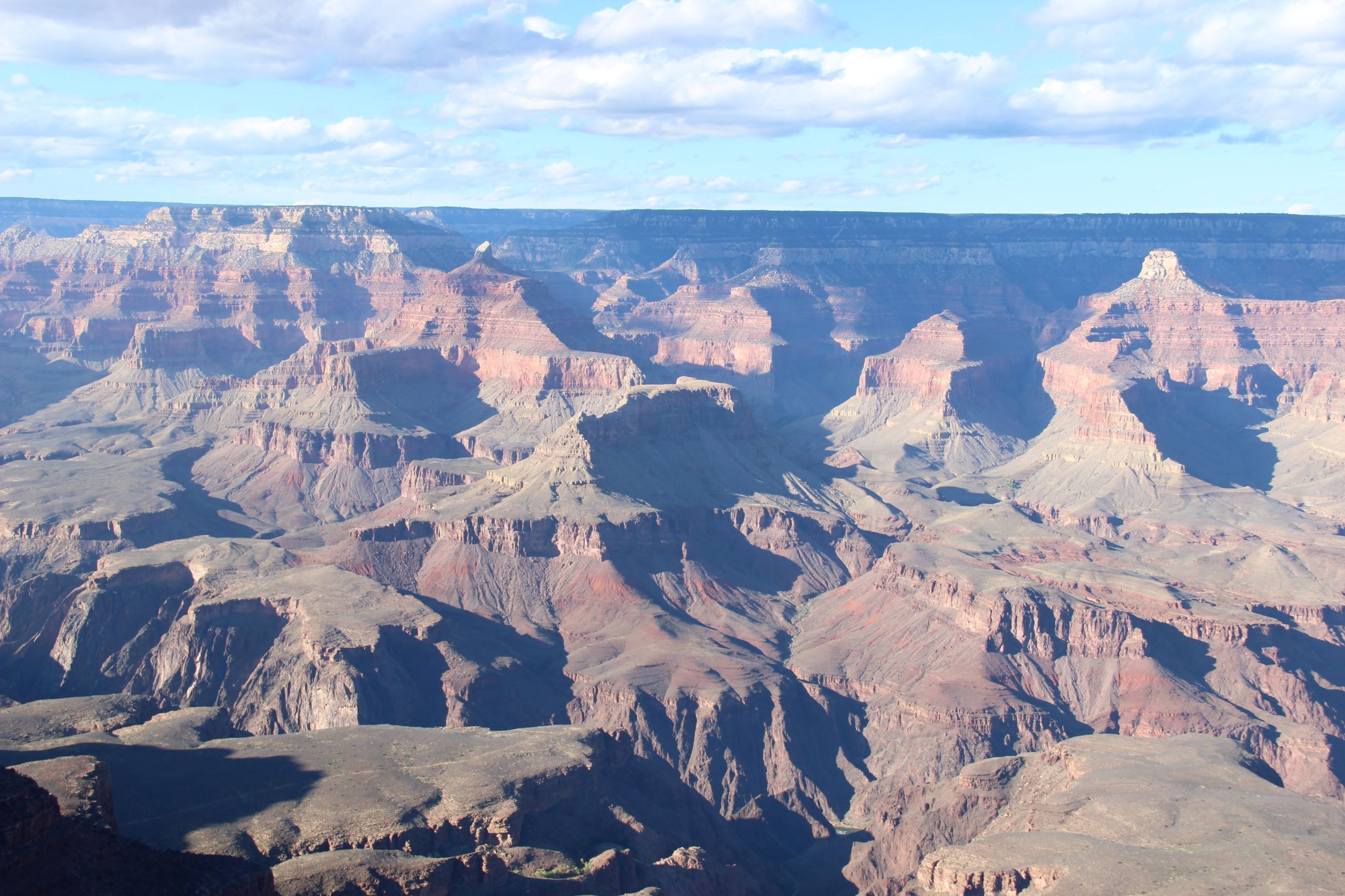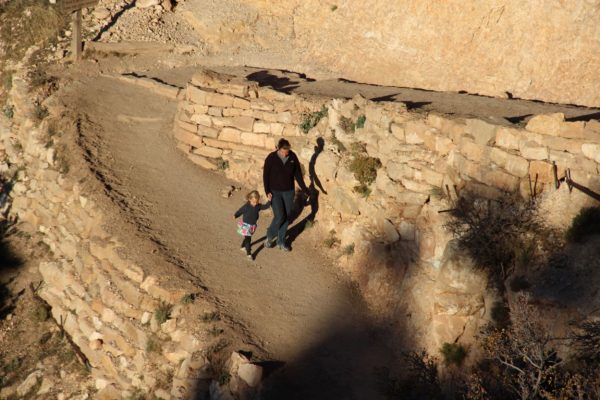Now before the Feast of the Passover, when Jesus knew that his hour had come to depart out of this world to the Father, having loved his own who were in the world, he loved them to the end. During supper, when the devil had already put it into the heart of Judas Iscariot, Simon’s son, to betray him, Jesus, knowing that the Father had given all things into his hands, and that he had come from God and was going back to God, rose from supper. He laid aside his outer garments, and taking a towel, tied it around his waist. Then he poured water into a basin and began to wash the disciples’ feet and to wipe them with the towel that was wrapped around him John 13:3-5 ESV (cf. Phil 2:3-11)
“A new commandment I give to you, that you love one another: just as I have loved you, you also are to love one another. By this all people will know that you are my disciples, if you have love for one another” John 13:34-35 ESV
Can you think of a time in your life when you were asked to give up something that was rightly yours (position, title, honor, convenience, etc.) in favor of someone else. How did you feel about it? Did you do it?
Life gives us daily opportunities to love others well, and often these opportunities require us to lower ourselves. Sometimes in big ways, but usually in the seemingly unimportant moments of life. Let me give you some examples of the choices I’ve had to make just today. Will I choose to walk the dogs in the morning so my family can sleep in? Will I make time for a friend who is going through a rough patch even though I’m very busy? Am I going to be interruptible by my daughter who wants to talk about *shudder* feelings? After all, I have a devotion to write. I won’t tell you what I chose, but each moment presented me with a choice that I could ignore, enter into willingly, or enter into resentfully, and each option really counted.
The passage that I’ve quoted from John’s gospel above is part of an extended scene that takes place shortly before Jesus crucifixion. Before he shared a final meal with his disciples, Jesus demonstrated what love looked like by washing the feet of his disciples. I’m not the most imaginative person in the world and have sometimes found that art, especially classical art, can illuminate scripture in a very helpful way for me. So, I searched the internet for artwork of Jesus washing his disciple’s feet. What I found was that it is incredibly difficult to find a picture that accurately depicts John’s account of the foot washing.
Almost without exception, everything I found depicted a noble looking Jesus – fully clothed and respectable – washing feet in a highly ceremonial way. In this kind of art, Jesus typically has a halo, and the disciples have puzzled expressions on their faces as they line up for their turn. Go ahead, google it for yourself. Try searching “classical artwork of Jesus foot washing” or “foot washing, ancient art” or simply “Jesus foot washing.” Heck, look at almost any TV show or movie on the topic for that matter. It’s all beautiful and not without edification, but the passage is much earthier than our best imaginings. John is not showing us a noble teacher who temporarily lowers himself in order to point to a timeless truth. Rather, Jesus acts as a house slave before his disciples. It’s scandalous, and it’s life changing.
You see, in a dry and dusty climate where most roads were dirt and there was no trash collection, feet needed to be washed frequently as sandals were the du jour footwear of the day. Any household that could afford it had a servant or slave, and it was common hospitality for the host to have his servant wash his guest’s feet. Foot washing was one of the most degrading jobs a person could do, so much in fact that it was optional for a Jewish servant in a Jewish household – they could never be forced to do it. For a Jewish teacher to lower himself in this way before his Jewish disciples? Unheard of! Peter said as much to Jesus: “You shall never wash my feet” (v8)
By washing his disciples’ feet, Jesus revealed a humble love that changes everything that it touches. His command to his disciples that “just as I have loved you, you also are to love one another,” was given based on the authority that he acted as a servant and his disciples’ obedience to that command changed the world. As Jesus followers today, we are bound by the same mandate: as we have been loved by Christ, so we are also to love others. Jesus held nothing back in demonstrating love while he was on this earth, not even his dignity. Let me personalize it for my own soul: In the same way that I am loved by Christ, so I am also to love others.
Returning to classical art for a moment: It could well be that Jesus is depicted as royal and fully clothed because of contextualization and consideration of the intended audience. I do wonder though, if at least part of the reason is because it is incredibly challenging to imagine Jesus as a voluntary slave. It certainly gives his words a much harder edge:
…I have given you an example, that you also should do just as I have done to you. Truly, truly, I say to you, a servant is not greater than his master, nor is a messenger greater than the one who sent him. If you know these things, blessed are you if you do them. (John 13:15-17)
Jesus expects his followers to lower themselves like he did. Yikes!
The only valid response is to ask: how then do I do the same? This is an uncomfortable commandment on a good day, let alone the troubled times of social division that we find ourselves in. What does it look like to love as Jesus loved? To serve as he served?
What I know is that Jesus calls me to a life of love and service which will be an affront to my pride and my desire to say “I’m too good for that.” If Jesus can take on the most degrading job around as a prelude to ultimate indignity of the cross and essentially say “do what I just did and you’ll be blessed,” then the implication is that there is no action I can take on behalf of others which is somehow “beneath” me.
There are some very uncomfortable questions that this brings up for me:
- When I encounter someone who is somehow different, in race, creed, politics, or social status, do I honor them in word and deed? For example: How welcome would a non-Christian feel at my house?
Or, more provocatively: How would I as an ordained man respond to feedback and critique of my work by the lay woman who owns this site? - When I am upset by someone’s perceived foolishness, or challenged by their “differentness” how do I relate to them? For example: As I scroll through social media and see posts that I perceive to be ignorant or tone deaf, how do I interact with the person who posted them?
- When someone’s beliefs are different to mine on a topic I care about, how do I respond? For example: Could I be more than a casual acquaintance of someone who identifies as LGBTQ?
- Is status or being right more important to me than loving and serving others? For example: Can I apologize when I’m wrong? No matter how public the apology needs to be?
I don’t have neat answers here. These are questions I have to resolve in my own soul. I wish my answers were a resounding yes, but my actions don’t always bear that out.
I think that, like the artists, my imagination is simply not big enough to fully grasp what Jesus is inviting me into. I know that I’m uncomfortable. It seems awfully hard, and probably very messy. But to acknowledge that fact does not mitigate the authority of Jesus’ command in any way. What I can do then is start by obeying in the small situations of life, as I have daily opportunity: to love others unconditionally, and to give what I have (time, love, emotional energy, resources) without reserve. In prayer, I can ask for – and confidently expect – Jesus’ help to expand my capacity to do so (1 John 5:14). After all, loving others well is God’s work, and Jesus promises that it will be blessed.

- Can you think of time in your life that someone served you in a way that was surprising or meaningful? What was it about the other person’s actions that was so memorable?
- What would it look like for you to try and imitate Jesus’ love at home? At work? At play? On social media?
- Who has God placed in your life to demonstrate love to today? How could that love be shown practically?





